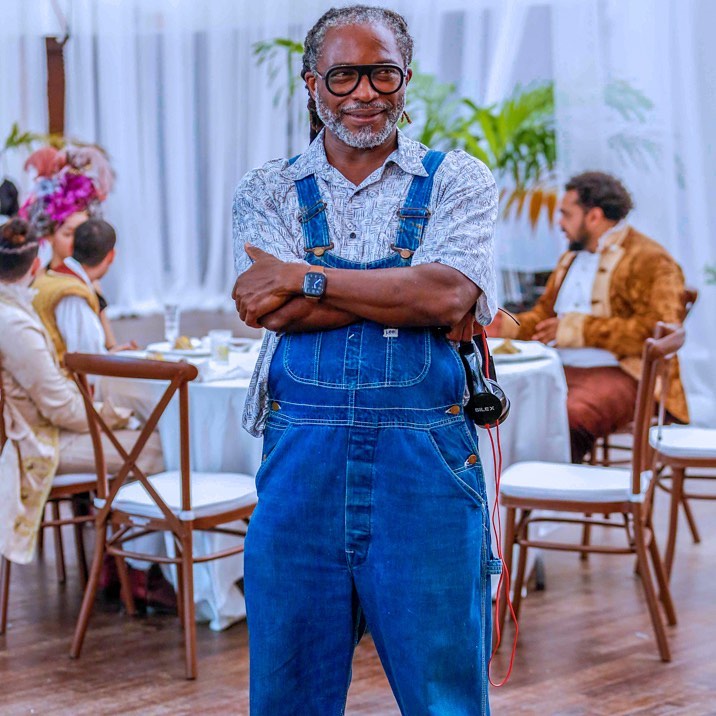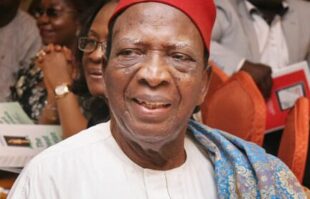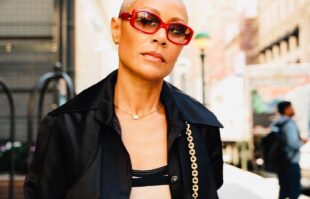Biyi Bandele was a Nigerian novelist, playwright, and director (born Biyi Bandele-Thomas). Bandele, who was based in the UK, wrote for radio, television, theatre, newspapers, and other media. In 1990, he relocated to London. He is known for working on book adaptation movies like “Half of a Yellow Sun,” and in 2022, he directed the first Netflix Nigerian Original series, Blood Sisters.
Contents

Biyi Bandele Biography
| Full Name | Biyi Bandele-Thomas |
|---|---|
| Date of Birth | 13 October 1967 |
| Died | 7 August 2022 (aged 54) |
| Place of Birth | Kafanchan, Kaduna State, Nigeria |
| Alma mater | Obafemi Awolowo University, Ile-Ife |
| Occupation | Filmmaker, Novelist, Playwright |
| Active Years | 1998 —2022. |
| Net Worth | $5 million |
| Social Media Handles | Instagram: biyibandele |
Early Life and Education
Bandele was born on October 13th, 1967 to Yoruba parents in Kafanchan, Kaduna State, Nigeria. Bandele lived for the first 18 years of his life in the north-central region of the nation, where he was born. His father, Solomon Bandele Thomas, a native of Abeokuta, Ogun State, served in the Burma Campaign during World War II when Nigeria was still a part of the British Empire. Bandele had aspirations of being a writer, and at the age of 14, he took first place in a short-story contest.
He relocated to Lagos and enrolled at the Obafemi Awolowo University, Ile-Ife, to study drama in 1987. Bandele won the 1989 International Student Playscript Competition with an unpublished play called Rain, before taking home the 1990 British Council Lagos Award for a collection of poems.
Career
Biyi Bandele worked with the Royal Court Theatre and the Royal Shakespeare Company, as well as writing radio dramas and screenplays for television. His plays include Rain; Marching for Fausa (1993); Resurrections in the Season of the Longest Drought (1994); Two Horsemen (1994), selected as Best New Play at the 1994 London New Plays Festival; Death Catches the Hunter and Me and the Boys (published in one volume, 1995); and Oroonoko, an adaptation of Aphra Behn’s 17th-century novel of the same name. In 1997, he did a successful adaptation of Chinua Achebe’s “Things Fall Apart.” Brixton Stories, Bandele’s stage adaptation of his own novel, The Street (1999), premiered in 2001 and was published in one volume with his play, Happy Birthday Mister Deka, which premiered in 1999. In 2001, he also adapted Lorca’s “Yerma”.
He had many residency positions throughout the years, including writer-in-residence with Talawa Theatre Company from 1994 to 1995; resident dramatist with the Royal National Theatre Studio (1996); and Judith E. Wilson Fellow at Churchill College, University of Cambridge, from 2000–2001. Furthermore, he served as the Bush Theatre’s Royal Literary Fund Resident Playwright from 2002 to 2003.
Bandele’s publications, The Man Who Came in from the Back of Beyond (1991) and The Street (1999), are two of Biyi Bandele’s novels, has been praised for being “rewarding reading, capable of vivid surrealism and wit as well as political involvement.” Likewise, his 2007 book, Burma Boy, which Tony Gould praised in The Independent as “a great effort,” was praised for giving previously unheard Africans a voice.
Half of a Yellow Sun, his debut feature as a filmmaker, premiered at the 2013 Toronto International Film Festival and was met with an “ecstatic reception.” The movie attracted a variety of critical attention. The 2015 London Film Festival featured his most recent movie, Fifty. He also directed the third season of the well-known MTV drama series Shuga. He directed the first Netflix original series from Nigeria, Blood Sisters, in 2022.
He was named the director of the upcoming Netflix and Ebonylife TV co-production Elesin Oba, The King’s Horseman, which will premiere at the Toronto International Film Festival in September 2022 and is a screen adaptation of Wole Soyinka’s stage drama Death and the King’s Horseman.
Biyi Bandele’s Death
His untimely death was announced on Facebook by his daughter on August 9, 2022. The cause of his death has not been confirmed.
Achievement
Biyi Bandele is renowned for his frequently sarcastic portrayals of life in Africa and among African immigrants. For his adaptation of Aphra Behn’s story from the seventeenth century, “Oroonoko,” Bandele won the BT Ethnic and Multicultural Award for best play in 2000. Bandele has won numerous accolades for his work. His 2007 book, “Burma Boy,” was praised for giving voice to previously unheard Africans and was deemed “a fine achievement” in Tony Gould’s review in The Independent.
Bibliography
- The Man Who Came in From the Back of Beyond, Bellew, 1991
- The Sympathetic Undertaker and Other Dreams, Bellew, 1991.
- Marching for Fausa, Amber Lane Press, 1993.
- Resurrections in the Season of the Longest Drought, Amber Lane Press, 1994.
- Two Horsemen, Amber Lane Press, 1994.
- Death Catches the Hunter/Me and the Boys, Amber Lane Press, 1995.
- Chinua Achebe’s Things Fall Apart (adaptation), 1999
- Aphra Behn’s Oroonoko (adaptation), Amber Lane Press, 1999.
- The Street, Picador, 1999
- Brixton Stories/Happy Birthday, Mister Deka, Methuen, 2001
- Burma Boy (London: Jonathan Cape, 2007), published as The King’s Rifle in the US and Canada (Harper, 2009).
Selected Writings
Novels
- The Man Who Came in from the Back of Beyond, Bellew, 1991.
- The Sympathetic Undertaker and Other Dreams, Bellew, 1991.
- The Street, Picador, 1999.
- Burma Boy, Jonathan Cape, 2007.
Plays
- Rain, 1991.
- Marching for Fausa, 1993.
- Resurrections, 1994.
- Two Horsemen, 1994.
- Death Catches the Hunter, 1995.
- (Adaptation) Things Fall Apart, by Chinua Achebe, 1997.
- “Thieves Like Us,” 1998.
- (Adaptation) Oroonoko, by Aphra Behn, 1999.
- Brixton Stories/Happy Birthday, Mister Deka, 2001.
Screenplays
- Not Even God Is Wise Enough, BBC, 1993.
- Bad Boy Blues, BBC, 1996.
Periodicals
- The Guardian (London), April 26, 2003.
- New York Times, February 11, 2008; February 17, 2008.
- Variety, March 1999; February 11, 2008.
- World Literature Review, March 1994.
- World Literature Today, June 2000.
Online
- Oyedeji, Koye, “Interview: Biyi Bandele,” BBC Africa Online, 2007, http://www.bbc.co.uk/africabeyond/africanarts/19924.shtml
Awards and Nominations
- 1989 – International Student Playscript Competition – Rain
- 1994 – London New Play Festival – Two Horsemen
- 1995 – Wingate Scholarship Award
- 1998 – Peggy Ramsay Award
- 2000 – EMMA (BT Ethnic and Multicultural Media Award) for Best Play – Oroonoko
Net Worth
Bandele was a successful filmmaker and writer, his estimated net worth is $5 Million.
Social Media Handles
Instagram: biyibandele
Twitter: @biyibandele





